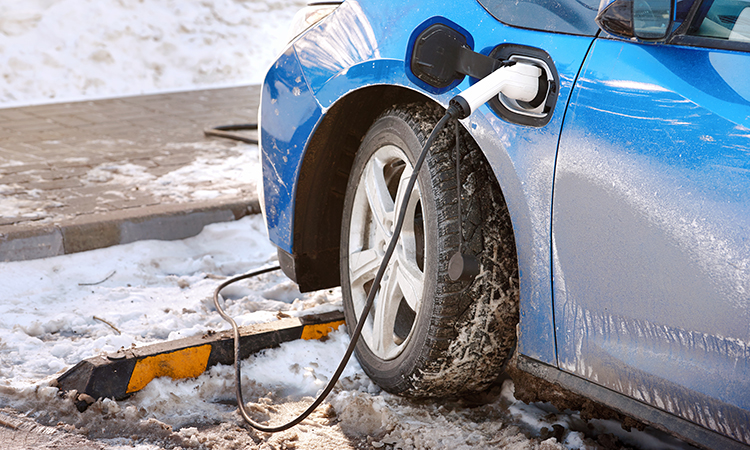
10 Dec
Electric vehicle owners have likely realized one cold, hard truth: Winter is harsh for EVs.
Most EVs offer excellent traction and control – two must-haves for winter driving in Colorado – but research by several reputable, impartial organizations – AAA and Consumer Reports among them – confirms “range anxiety” is a valid concern when temperatures drop. Most EVs see a decrease of 20% to 40% in range in temperatures of 20 degrees Fahrenheit and lower.
Such decreases are typically caused by two things: Temperature sensitivity in the lithium-ion battery that powers most EV models, and higher operating demands, including cabin heating, increased rolling resistance and more frequent braking.
Advances in temperature control and other EV technologies will likely improve winter performance. In the meantime, experts suggest EV owners do the following:
• Before driving, preheat or “precondition” your EV by warming up the interior and battery while it is still plugged in.
• Plan to charge your EV more frequently. Consult an online EV charging station map ahead of any road trip and chart shorter legs between charges. Build in additional time for each “refuel,” too, as most models take longer to charge in cold weather.
• Do not leave your EV with a charge of less than 20%. It might need that much just to keep the battery warm enough to start.
• Avoid hard braking, which reduces the energy recovered from the regenerative braking systems found in most models.
• Minimize your use of entertainment systems and other powered accessories. Seat and steering wheel warmers, however, can be more energy-efficient than cabin heating.
• Park your EV in a garage or other structure that will at least partially protect it from the cold.
Customers considering the purchase of an EV should evaluate their driving habits and needs during cold weather. Consumer Reports offers one easy rule of thumb: Buy an EV with a range at least twice what you need in a typical day.
Visit www.CORE.coop/electric-vehicles for links to additional EV information, including a buying guide, fuel economy and tax credits.